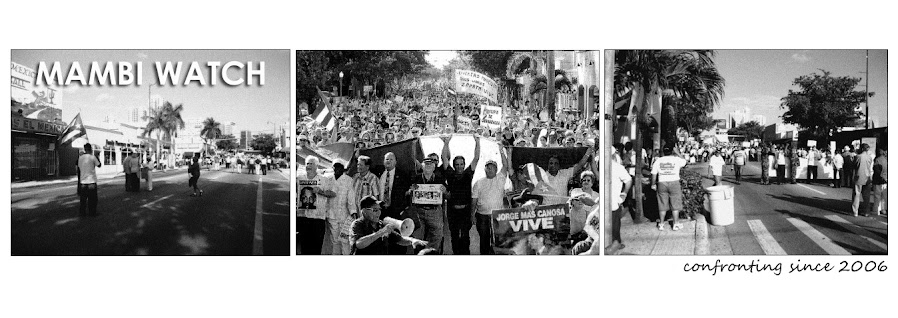 This past Wednesday, the Brookings Institution hosted a conference about Cuba called "Cuba 2008: Opportunities and Challenges." So far, I haven't found any reports or summaries of the event, except from the US-financed Radio Martí. The report by Radio Martí on this event is very short and leaves one with little information on this day-long, multi-panel conference. Once an official report is released I will make sure to provide a link.
This past Wednesday, the Brookings Institution hosted a conference about Cuba called "Cuba 2008: Opportunities and Challenges." So far, I haven't found any reports or summaries of the event, except from the US-financed Radio Martí. The report by Radio Martí on this event is very short and leaves one with little information on this day-long, multi-panel conference. Once an official report is released I will make sure to provide a link.According to the Radio Martí report (in Spanish), "despite there being divergent opinions" among the twenty panelists involved (who come from various backgrounds), "the majority agreed that the final goal should be that democracy in Cuba be decided by Cubans on the island."
The day-long conference was made up of four panels, each discussing different topics about Cuba at different scheduled times throughout the day. The panelists ranged from Jaime Suchlicki, director of UM's Institute for Cuban and Cuban-American Studies (ICCAS, which receives some funding from the US government), to John McAuliff, executive director of the Fund for Reconciliation and Development.
Radio Martí does mention one point where "some experts" did have "divergent opinions," such as whether the democratic transition in Cuba will be a long process or a short one.
Radio Martí quotes Phil Peters saying that while public debates are taking place on the island, it is still not known if this will lead to significant democratic changes. Peters also tells Radio Martí that the opposition in Cuba have strong ideas in favor of democracy, but that we must also consider if Raul of Fidel remain in charge before making a judgment. As a result, Peters sees no political changes "on the horizon" in Cuba.
Radio Martí then quotes Andy Gomez, another researcher from UM's ICCAS who participated in the Brookings conference, saying: "Myself, as a Cuban, born in Cuba, the first thing I want is democracy tomorrow." Gomez believes that "we" (the US) need to continue our support of Cuban civil society and help "sustain it and maintain it."
Gomez has gone on record to say that the US "should've probably lifted the embargo when the Soviet Union fell apart, and let everything go in, particularly people with new ideas, and give people the opportunity, those in Cuba, to hear how the rest of the world was going on." But, Gomez now supports the US embargo as potential political leverage in demanding "at least three conditions" from the Cuban government: "Respect for human rights, the release of all political prisoners, and give the Cuban people, within the first 18 months to two years, the opportunity to choose who they want as their next leader." Gomez has also stated that once Raul Castro is seen as the definitive new leader of Cuba "[he's] got six months to a year to bring about some positive change. I'm not talking political reform. [Rather] Minimal economic reforms. If he doesn't, then I dare to say, that you can have a large migration out of Cuba."
Among the other panelists were political analysts who oppose the US embargo like Vicki Huddleston, Julia Sweig, Carmelo Mesa-Lago, Riordan Roett and others.
[Photo above of Havana]

No comments:
Post a Comment